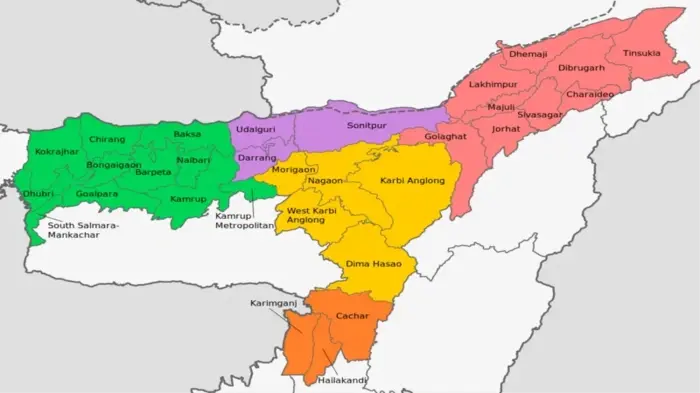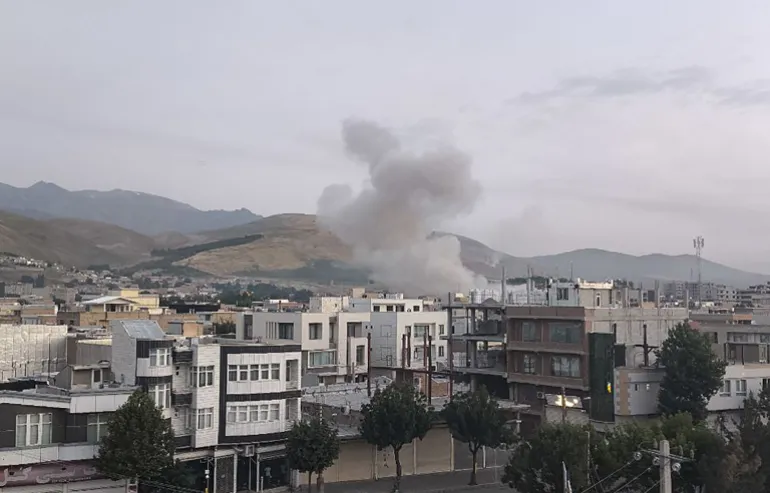- Courses
- GS Full Course 1 Year
- GS Full Course 2 Year
- GS Full Course 3 Year
- GS Full Course Till Selection
- Answer Alpha: Mains 2025 Mentorship
- MEP (Mains Enrichment Programme) Data, Facts
- Essay Target – 150+ Marks
- Online Program
- GS Recorded Course
- NCERT- First Ladder
- Polity
- Geography
- Economy
- Ancient, Medieval and Art & Culture AMAC
- Modern India, Post Independence & World History
- Environment
- Governance
- Science & Technology
- International Relations and Internal Security
- Disaster Management
- Ethics
- Current Affairs
- Indian Society and Social Issue
- CSAT
- 5 LAYERED ARJUNA Mentorship
- Public Administration Optional
- ABOUT US
- OUR TOPPERS
- TEST SERIES
- FREE STUDY MATERIAL
- VIDEOS
- CONTACT US
Assam Amends Law on Autonomous Councils
Assam Amends Law on Autonomous Councils
11-03-2025

- In March 2025, the Assam Assembly passed bills allowing the Governor to assume control over statutory autonomous councils if elections are delayed beyond their extended term.
- These amendments aim to prevent administrative paralysis in the governance of tribal areas.
- Autonomous Councils play a vital role in self-governance for tribal communities by preserving their culture, managing resources, and implementing development policies.
What are Statutory Autonomous Councils?
- These councils are created by State Legislatures under special Acts for the welfare of tribal communities.
- Objective: Social, economic, educational, and cultural development of Scheduled Tribes (STs).
- Present in Assam and Manipur (Assam has six such councils).
Which Statutory Autonomous Councils are Affected by the Amendment?
The new amendment impacts seven tribal councils in Assam:
- Mising Autonomous Council
- Thengal Kachari Autonomous Council
- Deori Autonomous Council
- Sonowal Kachari Autonomous Council
- Rabha Hasong Autonomous Council
- Tiwa Autonomous Council
- Bodo Kachari Autonomous Council
Key Features of the Amendment
- The amendment allows an extension of the council’s term for one year (divided into two six-month periods).
- If elections remain impractical beyond this extension, the Governor will assume control of the council.
- The move ensures governance continuity and stability in tribal areas.
Powers of Statutory Autonomous Councils in Assam
- These councils have executive powers over 34 subjects, including: Land administration and revenue, Education (primary & secondary), Cottage industries, Agriculture and irrigation, Public health and sanitation
Constitutional Autonomous District Councils (ADCs)
- Established under Article 244 (Sixth Schedule) of the Constitution.
- Aim to provide self-rule to tribal populations in Assam, Meghalaya, Mizoram, and Tripura.
- If multiple tribes exist in a district, the Governor can carve out an Autonomous Regional Council.
- There are 10 ADCs across Assam, Meghalaya, Mizoram, and Tripura.
- Composition of ADCs
- Maximum Strength: 30 members
- Elected Members: The majority, with a five-year term.
- Nominated Members: The Governor nominates four members for representation.
- Exception: The Bodoland Territorial Council (BTC) has 46 members.
Powers of ADCs
- Legislative Powers
- Can make laws on land, forests, agriculture, water resources, sanitation, public health, and social customs.
- Judicial role: Can handle disputes among tribal groups.
- Executive Powers
- Administer village councils, policing, inheritance laws, and local governance.
- Manage education, healthcare, and infrastructure development.
- Judicial Powers
- Can establish tribal courts for cases involving Scheduled Tribes.
- The courts can issue punishments up to five years of imprisonment.
- Financial and Taxation Powers: ADCs have the power to levy taxes, tolls, and fees on:
- Land, buildings, vehicles, boats, and animals
- Goods entering the district
- Employment-based income
- The revenue is used for local governance, roads, and public welfare projects.
Governor’s Role in ADCs
- The Governor has the power to create, modify, or dissolve ADCs.
- Can intervene in governance if needed to maintain order.
Autonomous District Councils in Assam
- Assam has three ADCs under the Sixth Schedule:
- Bodoland Territorial Council (BTC)
- Dima Hasao Autonomous District Council
- Karbi Anglong Autonomous District Council
Impact of the Amendment on Governance
- The Governor’s intervention will ensure that autonomous councils do not remain defunct (non-operational) due to election delays.
- This move is expected to bring administrative efficiency but may also reduce self-governance in tribal areas.
- Critics argue that Governor’s control may lead to political interference, but supporters believe it will prevent a governance vacuum.
Climate Change and Autonomous Councils in Assam
The governance of tribal areas, including ADCs and Statutory Councils, is interlinked with environmental and economic challenges.
- Impact of Climate Change on Assam’s Tea Industry
- Climate change has led to altered rainfall patterns, increased pests, and declining tea yields.
- In 2024, India’s tea production dropped by 109 million kg due to climate issues.
- Role of Renewable Energy in Tribal Areas
- Assam’s Renewable Energy Policy 2022 encourages solar energy adoption in tea estates.
- Autonomous Councils can benefit from solar power adoption to reduce dependence on conventional electricity.
- Economic Challenges
- Global tea production in 2023 exceeded demand by 376 million kg, leading to a supply glut (oversupply).
- Tea producers in Assam are shifting focus to carbon trading and sustainable agriculture.
- Government Initiatives
- Advantage Assam 2.0 was launched to promote investment opportunities in the state.
- This initiative aims to improve economic conditions in tribal areas under autonomous councils.
Conclusion
The amendment in Assam’s Autonomous Councils Act strengthens Governor’s authority in case of election delays, ensuring continuity in governance. While this move aims to prevent administrative stagnation, it also raises concerns about potential political interference.



